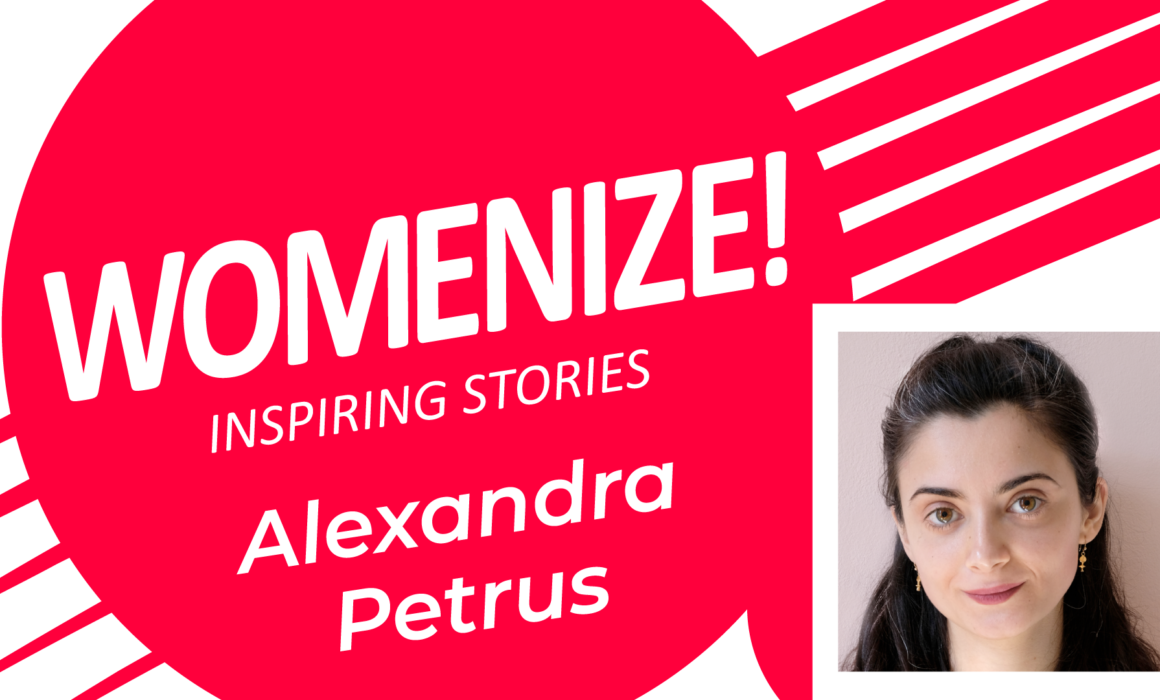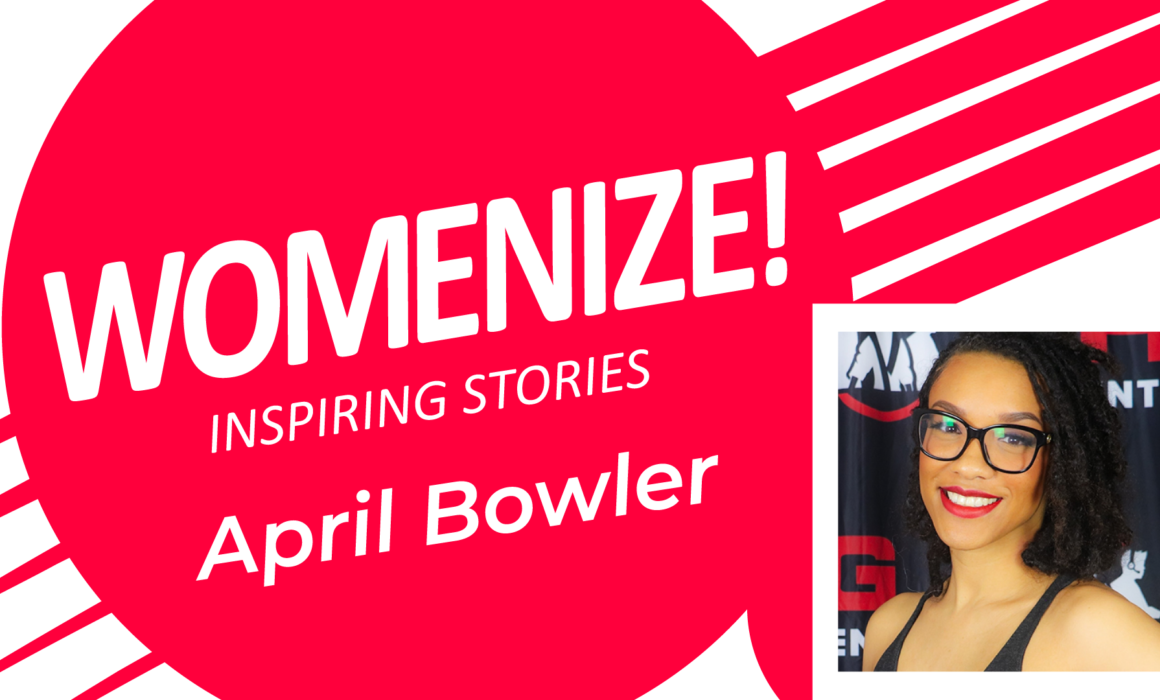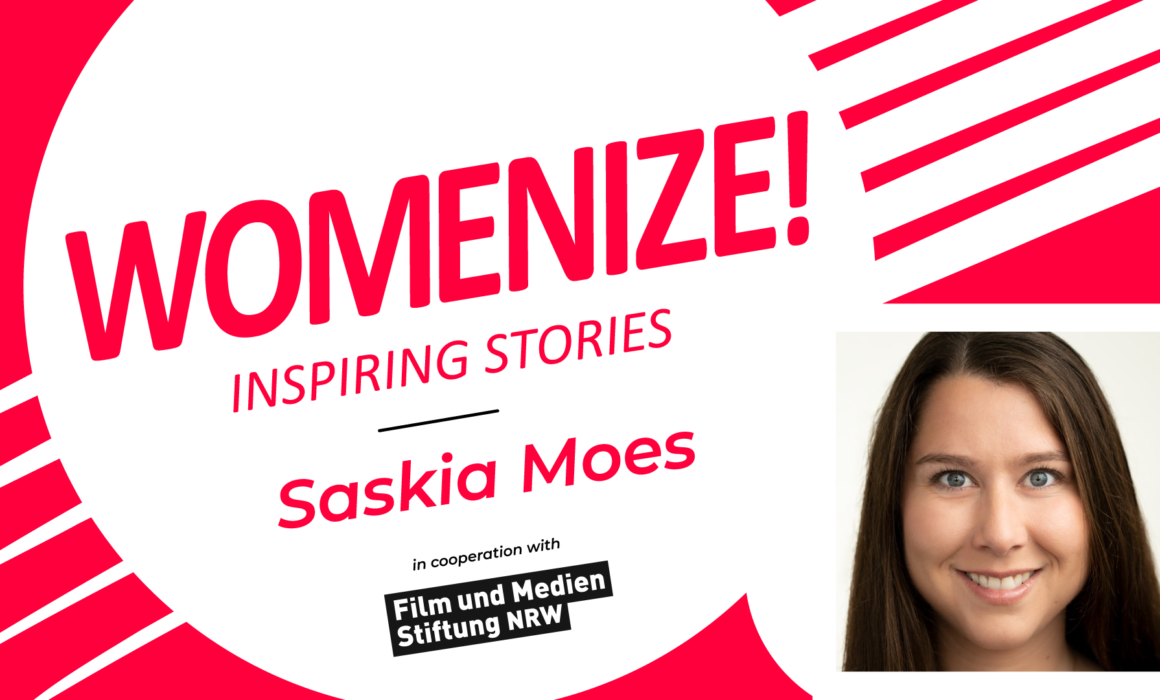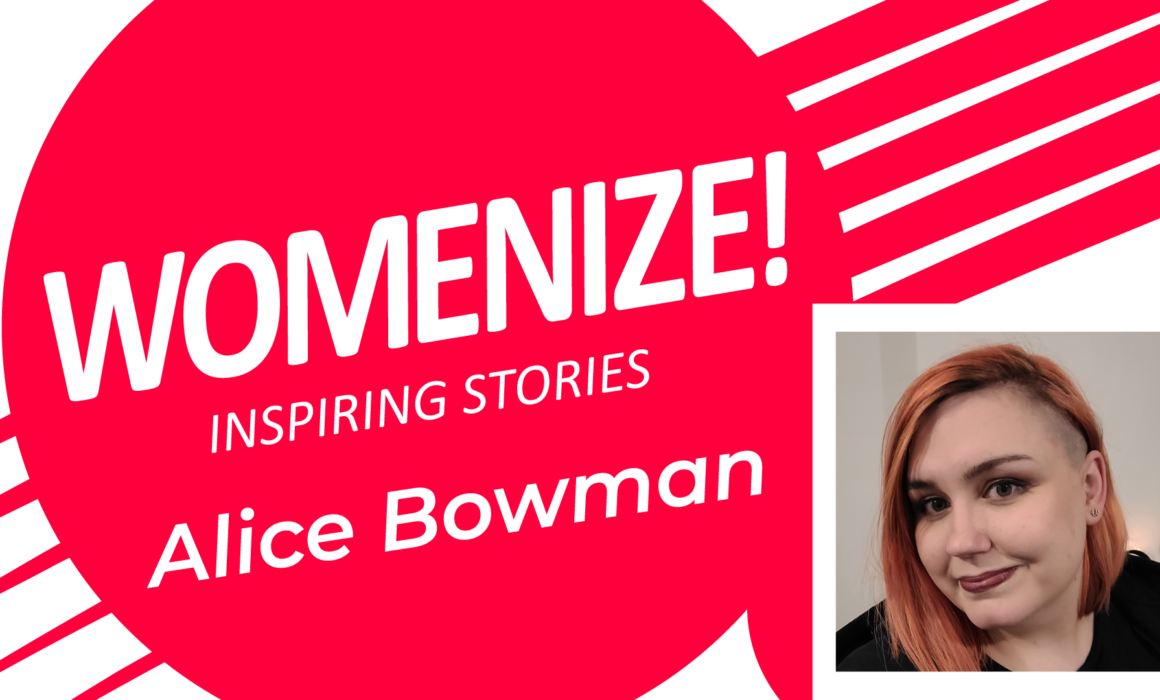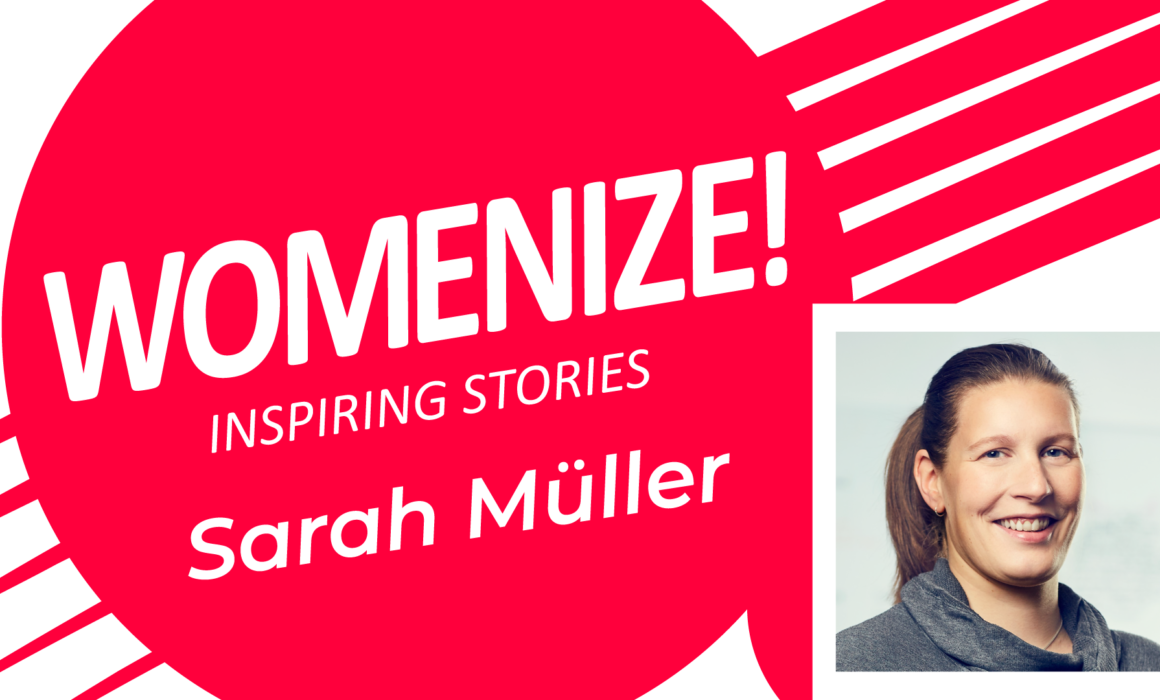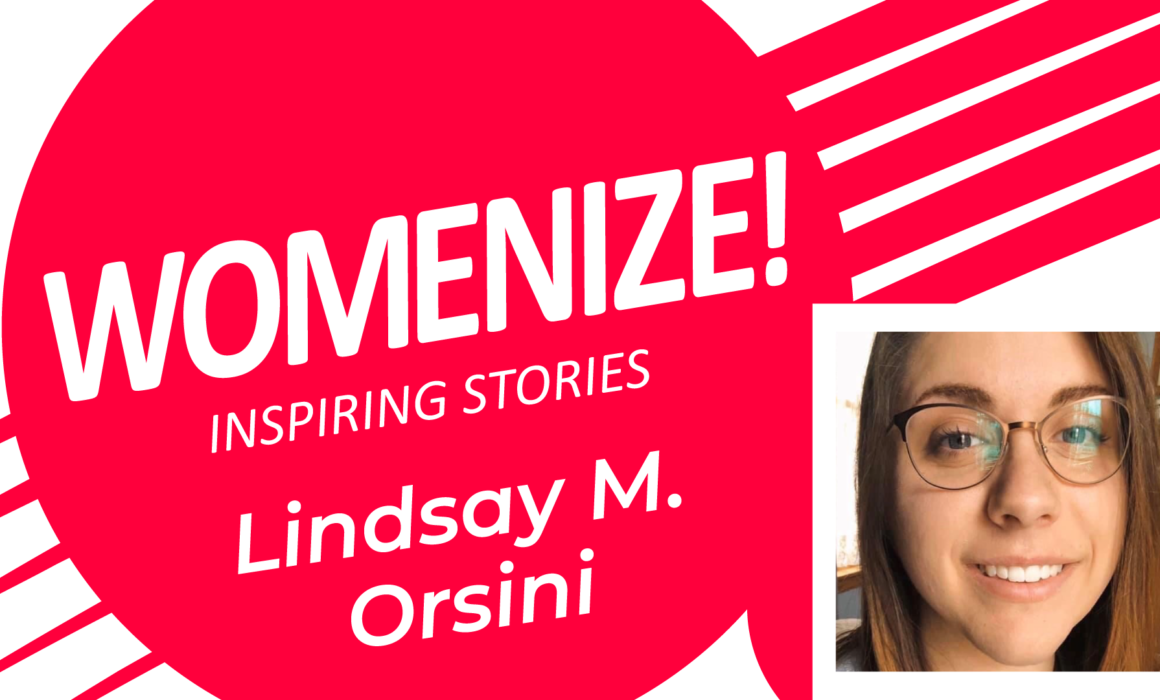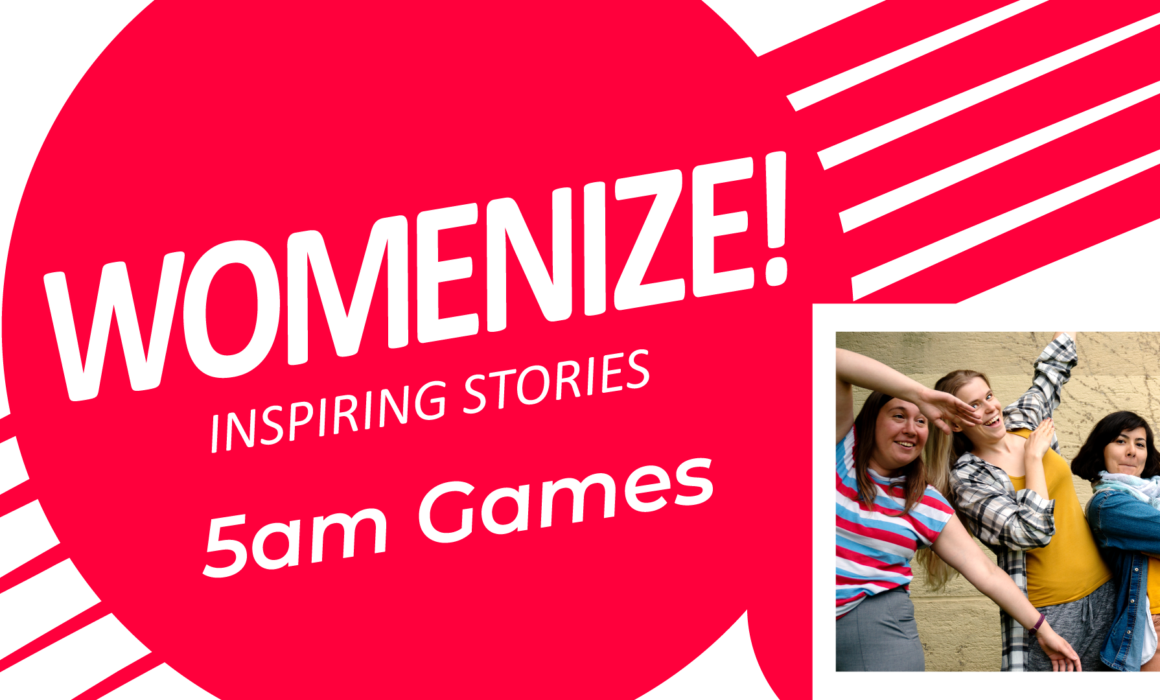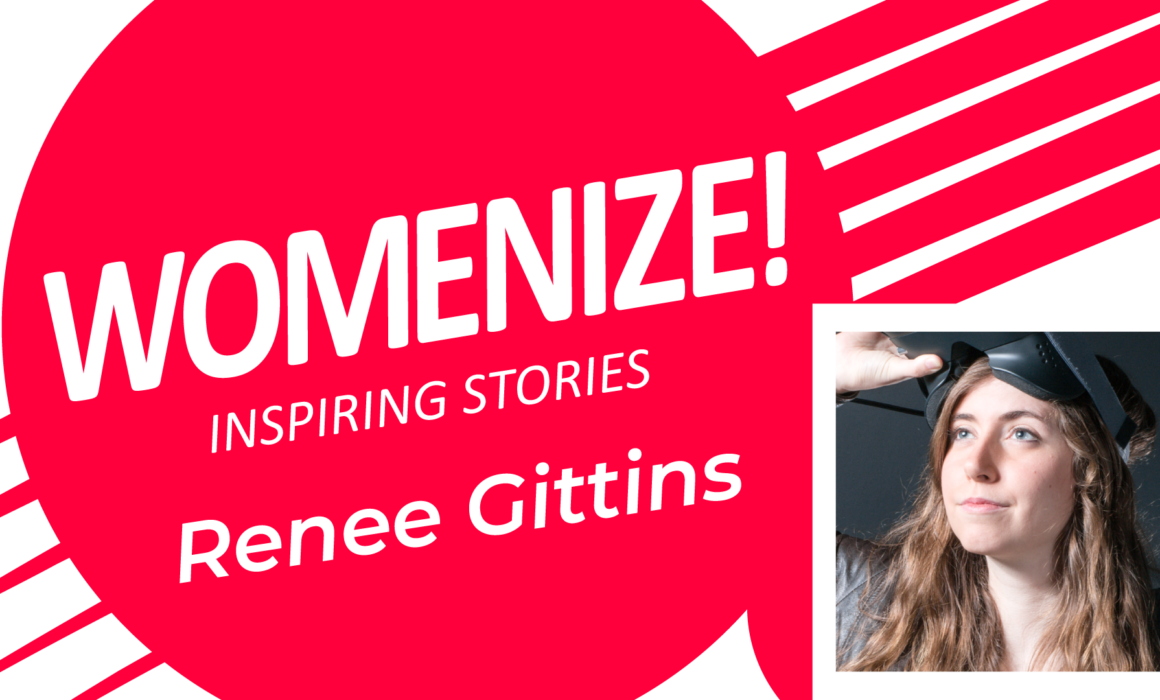Alexandra Petrus – Womenize! – Inspiring Stories
Womenize! – Inspiring Stories is our weekly series featuring inspirational women from games and tech. For this edition we talked to Alexandra Petrus, CEO & Co-Founder of Achtung Autobahn Studios and Program Manager at Cologne Game Lab. Read more about Alexandra in this interview:
Read More
April Bowler – Womenize! – Inspiring Stories
Womenize! – Inspiring Stories is our weekly series featuring inspirational women from games and tech. For this edition we talked to April Bowler, CIO & CTO of H.A.G Entertainment. Read more about April in this interview:
Read More
Saskia Moes – Womenize! – Inspiring Stories
Womenize – Inspiring Stories is our weekly series featuring inspirational women from games and tech. For this edition in cooperation with the Film und Medien Stiftung NRW, we talked to Saskia Moes, Project Lead of “Gaming ohne Grenzen”, an inclusive website for gamers with disabilities. Read more about Saskia in this interview:
Read More
Alice Bowman – Womenize! – Inspiring Stories
Womenize! – Inspiring Stories is our weekly series featuring inspirational women from games and tech. For this edition we talked to Alice Bowman, Content Designer at Trailmix. Read more about Alice in this interview:
Read More
Sarah Müller – Womenize! – Inspiring Stories
Womenize – Inspiring Stories is our weekly series featuring inspirational women from games and tech. For this edition we talked to Sarah Müller, Head of Localization at Gameforge. Read more about Sarah in this interview:
Read More
Lindsay M. Orsini – Womenize! – Inspiring Stories
Womenize! – Inspiring Stories is our weekly series featuring inspirational women from games and tech. For this edition we talked to Lindsay M. Orsini, Head Sound Designer at Krimson Games. Read more about Lindsay in this interview:
Read More
5am Games – Womenize! – Inspiring Stories
Womenize! – Inspiring Stories is our weekly series featuring inspirational women from games and tech. For this edition we talked to Aleksandra Iakusheva, Selina Capol and Martina Hotz, the founders of 5am Games. Read more about them in this interview:
Read More
Juli Bierwirth – Womenize! – Inspiring Stories
Womenize! – Inspiring Stories is our weekly series featuring inspirational women from games and tech. For this edition we talked to Juli Bierwirth, Illustrator & Co-Owner at Distant Rabbit Games. Read more about Juli in this interview:
Read More
Renee Gittins – Womenize! – Inspiring Stories
Womenize – Inspiring Stories is our weekly series featuring inspirational women from games and tech. For this edition we talked to Renee Gittins, Executive Director at IGDA and CEO & Creative Director of Stumbling Cats. Read more about Renee in this interview:
Read More
Recent Posts
Archives
- April 2025
- March 2025
- February 2025
- January 2025
- December 2024
- November 2024
- October 2024
- September 2024
- August 2024
- July 2024
- June 2024
- May 2024
- April 2024
- March 2024
- February 2024
- January 2024
- December 2023
- November 2023
- October 2023
- November 2022
- October 2022
- September 2022
- August 2022
- July 2022
- June 2022
- May 2022
- April 2022
- March 2022
- February 2022
- January 2022
- December 2021
- November 2021
- October 2021
- September 2021
- August 2021
- July 2021
- June 2021
- May 2021
- April 2021
- March 2021
- February 2021
- November 2020
- October 2020
- September 2020
- August 2020
- July 2020
- June 2020
- May 2020
- April 2020
- March 2020
- February 2020
- January 2020
- December 2019
- November 2019
- October 2019
- September 2019
- August 2019
- July 2019
- June 2019
- May 2019
- April 2019
- March 2019
- November 2018
- October 2018
- September 2018
- April 2018
- March 2018
- February 2018


